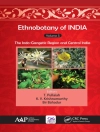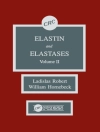This new 3-volume set provides informative reviews on the physiology of sponges, cnidarians, round and flat worms, annelids, echinoderms, and crustaceans, advancing our knowledge of the physiology of these major invertebrate groups (Phyla). Invertebrates exhibit the largest number of species and occupy virtually every conceivable ecological niche. They are economically important in food chains, they recycle organic waste, and they are crucial pollinators of plants and sources of food. They are also medically relevant as parasites that cause major diseases of both humans and livestock.Echinoderms and annelids are covered in Volume 3. The volume looks at temporary adhesion and regeneration as two important areas in echinoderm biology. It includes an important review of juxtaligamental cells, which may regulate the mechanical properties of connective tissue. Annelid physiology is discussed (neurobiology of locomotion in leeches, regeneration, reproduction) as is neuro-endocrine-immune response.Volume 1 looks at non-bilaterians (sponges, cnidarians, placozoans), while Volume 2 focuses on crustacean physiology, covering diverse physiological topics ranging from moulting, respiration, water balance, biomineralization, bioreceptors, and temperature regulation to the land adaptation of terrestrial crustaceans.
Sally P. Leys & Robert D. Roer
Frontiers in Invertebrate Physiology: A Collection of Reviews [PDF ebook]
Volume 3: Annelida and Echinodermata
Frontiers in Invertebrate Physiology: A Collection of Reviews [PDF ebook]
Volume 3: Annelida and Echinodermata
¡Compre este libro electrónico y obtenga 1 más GRATIS!
Idioma Inglés ● Formato PDF ● Páginas 524 ● ISBN 9781000900514 ● Editor Sally P. Leys & Robert D. Roer ● Editorial Taylor & Francis Ltd ● Publicado 2024 ● Descargable 3 veces ● Divisa EUR ● ID 9311015 ● Protección de copia Adobe DRM
Requiere lector de ebook con capacidad DRM












